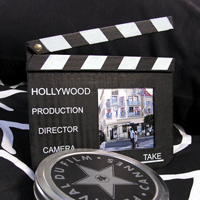When it comes to planning the future, most of us are historians.
We all know how it works.
“How are you?”
“Oh, you know… It was a tough weekend and then I had some really tricky stuff to do at work this week and my boss is always a nightmare, so I guess I’m pretty tired.”
It starts with little things. Someone asks us how we are and the answer we actually give is how we have been, not how we are now. What’s wrong with that? It keeps us in the cycle of how things used to be, throwing away any chance of changing them.
We “tell it how it is” – or even worse – “tell it how it was”.
And then we build in another layer – I call it the “I’ll feel happy when…” syndrome.
“I’ll feel happy when I get the job / relationship / payrise / car / home…”
It’s like happiness is a job we’re always putting off to some unspecified time in the future.
We find ourselves repeating the same patterns of behaviour, the same relationship cycles, the same mistakes.
When we worry about how the future might be, based on how the past was, we’re potentially throwing away any chance to make things different next time. We’re experts on our past – historians, analysing where it all went wrong. But that can keep us trapped with things we can’t change, missing out on the chance to steer things in a new direction.
“Worrying is a way of creating a future you don’t really want.”
The problem is simple:
Most of us are too busy being historians to deliberately plan and create our future.
Imagine a life where we actually learn from the past, history doesn’t repeat itself and we move towards our dreams? Imagine finding yourself where you want to be, more often than where you used to be?
Seven Steps To Turning Things Around





 Because this time I’m giving myself the added incentive of raising money for my favourite charity,
Because this time I’m giving myself the added incentive of raising money for my favourite charity, 

